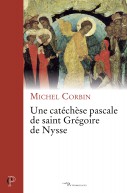Pour lire les Pères de l'Église
Collection Pour lire
144 pages - avril 2007
20,00€
Les Pères de l'Église sont ces écrivains chrétiens – théologiens, mystiques, moines, prêtres, évêques, laïcs, martyrs – des huit premiers siècles apr. J.-C., qui ont donné forme à la prière, à la liturgie, à la doctrine, à la spiritualité et aux institutions de l'Église. Ils ont écrit en grec, en latin ou en syriaque et ont été les artisans de l'évangélisation des peuples du Bassin méditerranéen. L'époque des Pères ne fut pas un « âge d'or » par rapport auquel les siècles qui ont suivi seraient en décadence, car peu de temps furent plus troublés, à l'extérieur comme à l'intérieur de l'Église. Il ne faudrait pas non plus vouloir transposer tels quels leurs enseignements aujourd'hui : la société, la culture, la langue, la mentalité, tout a changé. Cependant tous les renouveaux qui ont marqué la vie de l'Église au long des siècles ont puisé leurs ferments dans leurs œuvres : leur lecture est vitale, elle est un vrai retour aux sources. Si la distance qui nous sépare des Pères est grande, elle est loin d'être infranchissable. Précisément, ce guide se propose d'aider à rencontrer ces aînés dans la foi, et de découvrir qu'ils sont frères en même temps que pères. « Pour voir clair aujourd'hui, il faut interroger la Tradition qui vient des apôtres » (Irénée de Lyon, IIe siècle). « Être fidèle à la Tradition, ce n'est point répéter et transmettre littéralement des thèses de théologie, c'est bien plutôt imiter de nos Pères dans la foi l'attitude de réflexion intime et l'effort de création audacieuse, préludes nécessaires de la véritable fidélité spirituelle » (Hans Urs von Balthasar, XXe siècle).
--
The Fathers of the Church are those Christian writers – theologians, mystics, monks, priests, bishops, laymen and martyrs – who lived during the first eight centuries after the birth of Christ and gave form to the prayers, liturgy, doctrine, spirituality and institutions of the Church. They wrote in Greek, Latin or Syriac and were the architects of the evangelization of the peoples of the Mediterranean basin. But the period of the Fathers was no “golden age”, in comparison with which the following centuries may appear to represent a decline; for few periods witnessed so much turmoil, beyond and within the Church. Neither can their teachings be transposed as such to the modern world, for so much has changed since then: society, culture, language, mentalities. Yet it remains that all the significant transformations in the life of the Church throughout the centuries have drawn their ferment from the Father’s works: they are essential reading, a true ‘back to basics’. The distance in time between us and the Fathers may be vast, but it is far from being insuperable. The purpose of this guide is to introduce readers to those ancestors of our Faith, so that they might discover not only Fathers, but also brothers. ‘To see clearly nowadays, one must examine the Tradition which comes from the Apostles’ (Saint-Irenee, Lyon, 2nd c.) ‘Being faithful to the Tradition is not repeating and passing on theological theses to the letter, it is rather imitating our Fathers in the Faith, in their attitude of personal reflection and their attempts at bold creation, essential preludes to veritable spiritual fidelity’ (Hans Urs von Balthasar, 20th c).
--
The Fathers of the Church are those Christian writers – theologians, mystics, monks, priests, bishops, laymen and martyrs – who lived during the first eight centuries after the birth of Christ and gave form to the prayers, liturgy, doctrine, spirituality and institutions of the Church. They wrote in Greek, Latin or Syriac and were the architects of the evangelization of the peoples of the Mediterranean basin. But the period of the Fathers was no “golden age”, in comparison with which the following centuries may appear to represent a decline; for few periods witnessed so much turmoil, beyond and within the Church. Neither can their teachings be transposed as such to the modern world, for so much has changed since then: society, culture, language, mentalities. Yet it remains that all the significant transformations in the life of the Church throughout the centuries have drawn their ferment from the Father’s works: they are essential reading, a true ‘back to basics’. The distance in time between us and the Fathers may be vast, but it is far from being insuperable. The purpose of this guide is to introduce readers to those ancestors of our Faith, so that they might discover not only Fathers, but also brothers. ‘To see clearly nowadays, one must examine the Tradition which comes from the Apostles’ (Saint-Irenee, Lyon, 2nd c.) ‘Being faithful to the Tradition is not repeating and passing on theological theses to the letter, it is rather imitating our Fathers in the Faith, in their attitude of personal reflection and their attempts at bold creation, essential preludes to veritable spiritual fidelity’ (Hans Urs von Balthasar, 20th c).
- Dimensions : 210x210x10
- ISBN : 9782204083317
- Poids : 325 grammes
Avec la collaboration de : Guillaume Bady







